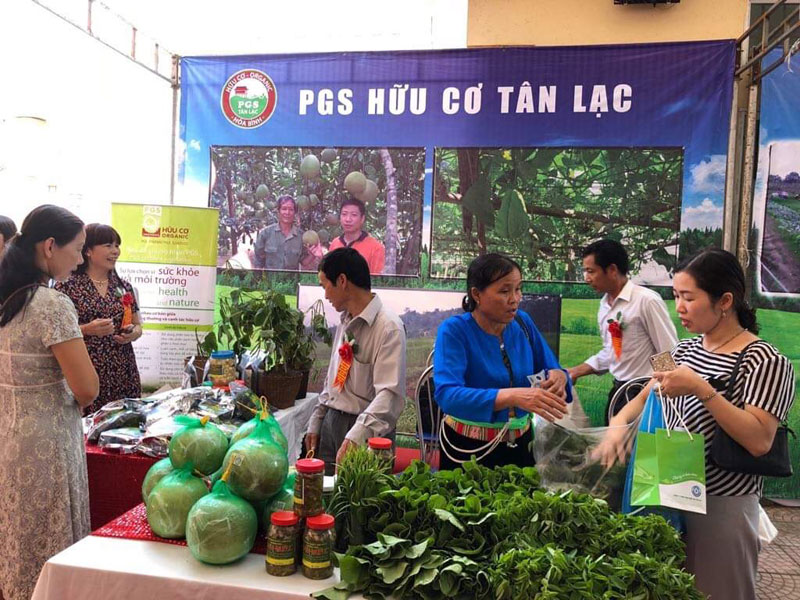
(HBO) – Tan Lac district in the northern mountainous province of Hoa Binh is working to remove bottlenecks for safe vegetable production as it has not yet set up any clean vegetable store.

Popularising local products at organic agricultural fairs is considered as the initial
step of Tan Lac district to seek consumption markets for its vegetables.
The
first safe vegetable cultivation cooperative group was set up in Sung hamlet,
Thanh Hoi commune, which focuses on growing seasonal crops with main vegetables
such as mustard greens, amaranth, aubergine, wax gourd, and cucumber.
According to head of the cooperative group Bui Van Thuan, the cooperative group
has been operational in four years, and some 2-3 hectares of land were zoned
off for plantation of safe vegetables. However, they are being sold at the same
prices as those without clear origin.
Thuan attributed the results to the fact that the vegetables have not been put
into the value chain, and they have no brand registration for consumers to
compare.
About 8-10 years ago, the mountainous communes of Quyet Chien, Ngo Luong, Lung
Van and Nam Son successfully expanded chayote plantation with the support of
the provincial Department of Science and Technology. Currently, chayote is
being grown in an area of nearly 95 hectares, 60 hectares of which are in Quyet
Chien commune. Particularly, there are 25 hectares in the commune receiving
VietGAP certification.
Local efforts in promoting good agricultural practice, building brands and
developing markets have paid off. Quyet Chien chayote has ridden out of the
shade of the same vegetable in Vinh Phuc province’s Tam Dao district, and has
been favoured by consumers after hitting the shelves of supermarkets in Hanoi.
In addition, thanks to favourable climate,
farmers in Tan Lac’s mountainous communes have developed non-traditional crops
such as tomato, cabbage and Korean beet on an area of 5 hectares./.
In Lac Thuy district, communes have been succeeded in promoting their One Commune-One Product (OCOP) products while others are still struggling to position their typical farming products in market. Some communes in the district still fail to have their products met OCOP programme’s requirements, while others have seen their certifications expired.
The inspectorate agency of Hoa Binh province has issued Official Dispatch No. 1090/TTr-PCTN to provincial departments, agencies, localities, business associations, enterprises, and investors regarding measures to improve informal component indexes of the Provincial Competitiveness Index (PCI).
Hoa Binh is taking concrete steps to improve its investment environment, with a strong focus on supporting businesses, settling obstacles for strategic investors, and creating opportunities for robust development in the coming years.
Under the blazing early summer sun, the construction site of Nhuan Trach Industrial Park (IP) in Luong Son district is abuzz with activities from dawn to dusk, a testament to the determination of the investor to meet their construction targets on schedule.



